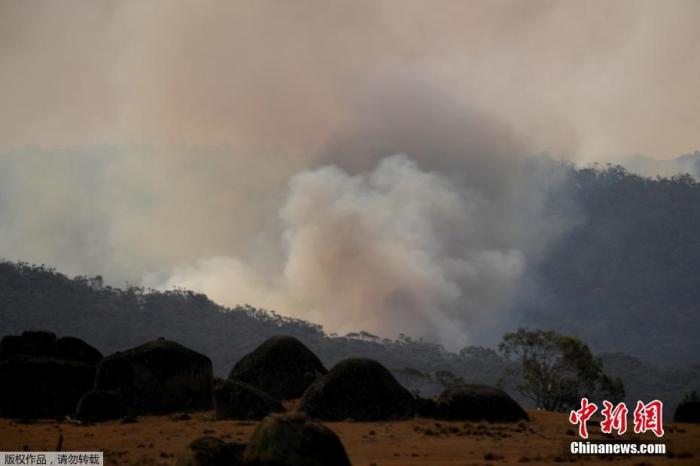China News Service, January 28. According to Australia.com, a new report issued by the Australian Climate Commission on the 27th stated that extreme weather events related to climate change will become more and more common in the daily lives of Australians in the next few decades. The common part, and extreme weather events related to climate change, may cause 100 billion Australian dollars in losses to the country’s economy every year.
This report shows that since the 1970s, the losses caused by extreme weather in Australia have almost doubled. In the past 10 years, it has caused a total of 35 billion Australian dollars in losses.
On January 25, local time, Adelaide, Australia. After the wildfire, some houses and trees in the area were burnt down, leaving a piece of scorched earth.
The Climate Committee said that the impact of extreme weather related to climate change such as fires, floods, droughts, storms and sea level rise may rise sharply in the future, and may cause up to 100 billion Australian dollars in losses to the Australian economy every year by 2038.
The report’s lead author, Will Steffen, also said that the wildfires of last summer also showed what happens when the climate reaches a “critical point”.
He said: "Similar events may occur more and more frequently. We cannot expect extreme weather events to increase in a smooth linear manner. They may increase at an extremely fast rate at any time, and as climate change continues These are the risks we are taking.” In addition, Stephen also said that research shows that Australians are five times more likely to be displaced due to climate disasters than Europeans.
On January 11, 2020 local time, the sky over New South Wales, Australia was filled with smoke.
In this regard, former UN Secretary-General’s Special Representative for Disaster Reduction, Robert Glasser, said Australia should pay attention to the impact of climate change on the country and the region.
Glasser said that the Australian government needs to take stronger actions to reduce the country's greenhouse gas emissions and called on other countries to take more actions.
In addition, Australia must significantly improve its ability to deal with major climate disasters.
Stephen also said that in order to deal with the coming crisis, Australia's emissions must be halved in 2030 and reach net zero emissions by 2040.
He said: "This is what we need to do, a very clear action. There are many technologies now being used to make it possible to reduce emissions. In fact, it is ideology, political factors and vested interests that hinder us."

